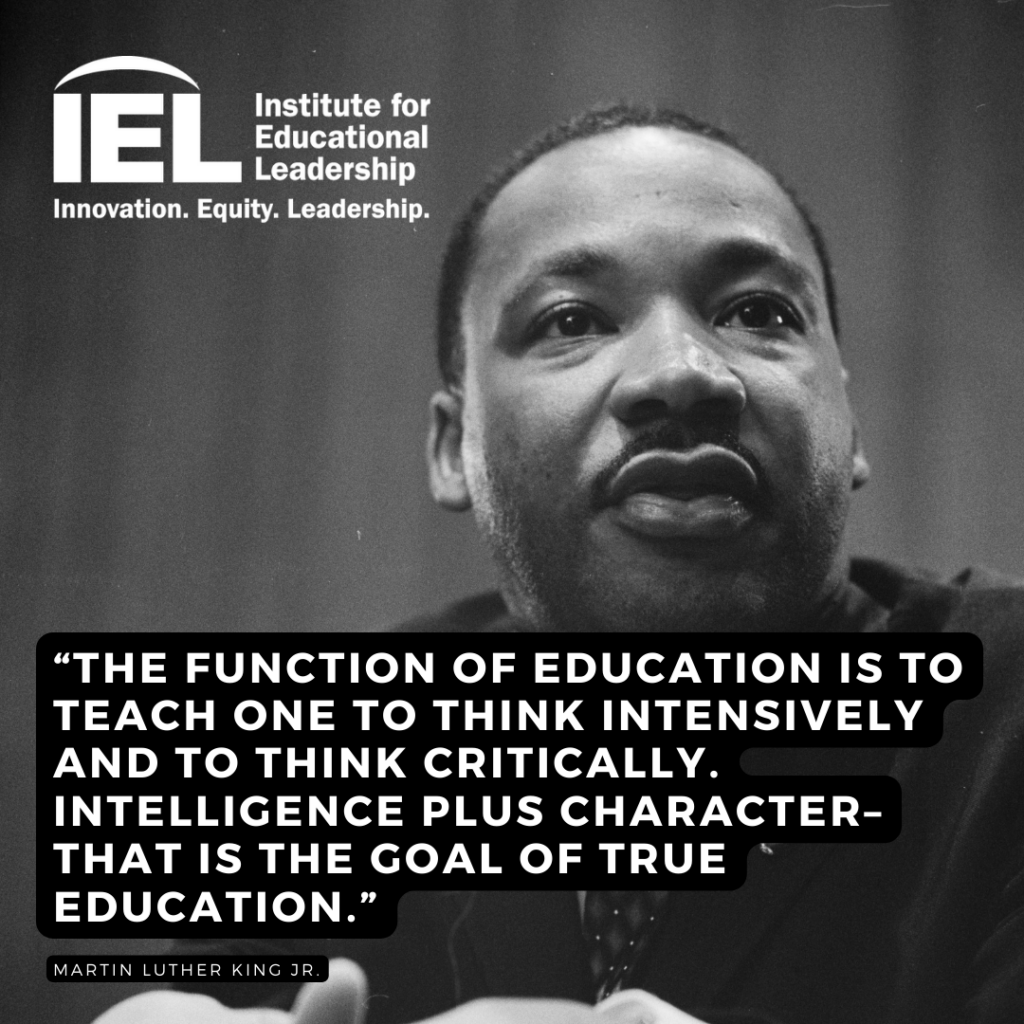Last week, America celebrated Dr. Martin Luther King Jr. Day, as we have for nearly 40 years. But as his daughter Rev. Bernice King said during a commemorative service at Ebenezer Baptist Church, our country has not fully acted on the many lessons left behind by her late father.
In both her speech and in a series of tweets, Bernice King referred to her father as an “inconvenient King,” criticizing those who she said have cheapened her father’s legacy into a “comfortable and convenient” King to avoid truly changing the thinking and behaviors around what he called the triple evils of poverty, racism, and militarism.
Bernice is right. Dr. King– a man who 75% of Americans disapproved of as he spoke out against the Vietnam war and economic disparity – fearlessly addressed society’s gravest ills. His inconvenient words often challenged the status quo, and as she said, his prophetic words called for inconvenience as they challenged society to change “our hearts, our minds, and our behavior.”
While leaders from both sides of the political spectrum love to quote Dr. King on MLK Day, many refuse to truly live by his words and address injustice. We see people post MLK quotes, often taken out of context from speeches where the late Civil Rights Leader addressed capitalism, police brutality, and poverty directly, while they remain unaffected and ultimately, apathetic to the suffering and inequities in our country.
Our education system, for example, is filled with disparities that hinder our students’ abilities to reach their fullest potential. And the COVID-19 pandemic continues to impact our education landscape today—as staffing shortages, teacher burnout, and a lack of affordable housing are issues at the forefront of many communities.
IEL’s 117th Policy by the People Agenda incorporated input from families, youth, and leaders across our country and seeks to marry Dr. King’s dream of both economic and racial justice. Among other priorities, the communities IEL engaged called for a universal basic income, an increase in affordable housing, and an expansion of government assistance programs that, through research-based strategies, have been proven to reduce poverty and improve lives. Dr. King himself even called for a guaranteed income to end poverty – a call that still seems like a dream today. In 2021, the government expanded the Child Tax Credit, and while it cut child poverty in half, the expansion failed to make it into the federal spending package President Biden signed into law in December 2022.
IEL strives to live King every day through our work with and service to communities across the country. For example, our Leaders of Tomorrow program centers on leadership development for immigrant and refugee youth that helps them build their knowledge, skills, and abilities in leadership and civic engagement, empowering them to create positive change in their communities.
Prioritizing the needs of historically marginalized populations means creating radical changes in our educational and economic systems that give each child and young person the right to an education and the ability to realize their fullest potential. That means bringing Dr. King’s dream to life – not just by quoting him each year, but by addressing the economic issues that disproportionately impact people of color.
Dr. King once said, “Life’s most persistent and urgent question is, ‘What are you doing for others?’” We must resist an inequitable status quo and fight fearlessly for economic and racial equality so that Dr. King’s dream truly becomes a reality.
